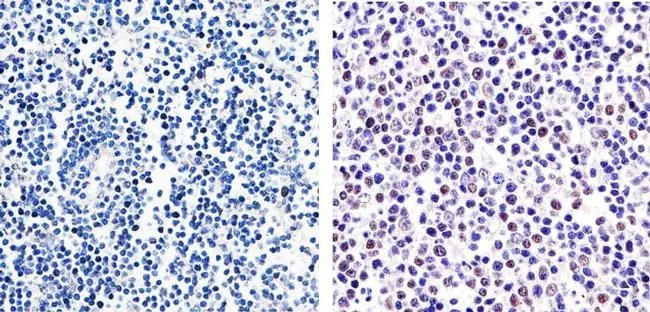
IHC-P analysis of mouse lymph node using GTX25245 GATA4 (phospho Ser105) antibody. Right : Primary antibody Left : Negative control without primary antibody Antigen retrieval : 10mM sodium citrate (pH 6.0), microwaved for 8-15 min Dilution : 1:20
GATA4 (phospho Ser105) antibody
GTX25245
ApplicationsWestern Blot, ImmunoHistoChemistry, ImmunoHistoChemistry Paraffin
Product group Antibodies
ReactivityHuman, Mouse
TargetGATA4
Overview
- SupplierGeneTex
- Product NameGATA4 (phospho Ser105) antibody
- Delivery Days Customer9
- Application Supplier NoteWB: 1:500. IHC-P: 1:10-1:50. *Optimal dilutions/concentrations should be determined by the researcher.Not tested in other applications.
- ApplicationsWestern Blot, ImmunoHistoChemistry, ImmunoHistoChemistry Paraffin
- CertificationResearch Use Only
- ClonalityPolyclonal
- ConjugateUnconjugated
- Gene ID2626
- Target nameGATA4
- Target descriptionGATA binding protein 4
- Target synonymsASD2, TACHD, TOF, VSD1, transcription factor GATA-4, GATA-binding factor 4
- HostRabbit
- IsotypeIgG
- Protein IDP43694
- Protein NameTranscription factor GATA-4
- Scientific DescriptionThis gene encodes a member of the GATA family of zinc-finger transcription factors. Members of this family recognize the GATA motif which is present in the promoters of many genes. This protein is thought to regulate genes involved in embryogenesis and in myocardial differentiation and function, and is necessary for normal testicular development. Mutations in this gene have been associated with cardiac septal defects. Additionally, alterations in gene expression have been associated with several cancer types. Alternative splicing results in multiple transcript variants. [provided by RefSeq, Apr 2015]
- ReactivityHuman, Mouse
- Storage Instruction-20°C or -80°C,2°C to 8°C
- UNSPSC41116161

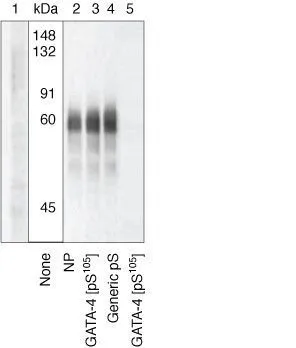
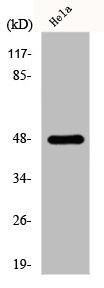

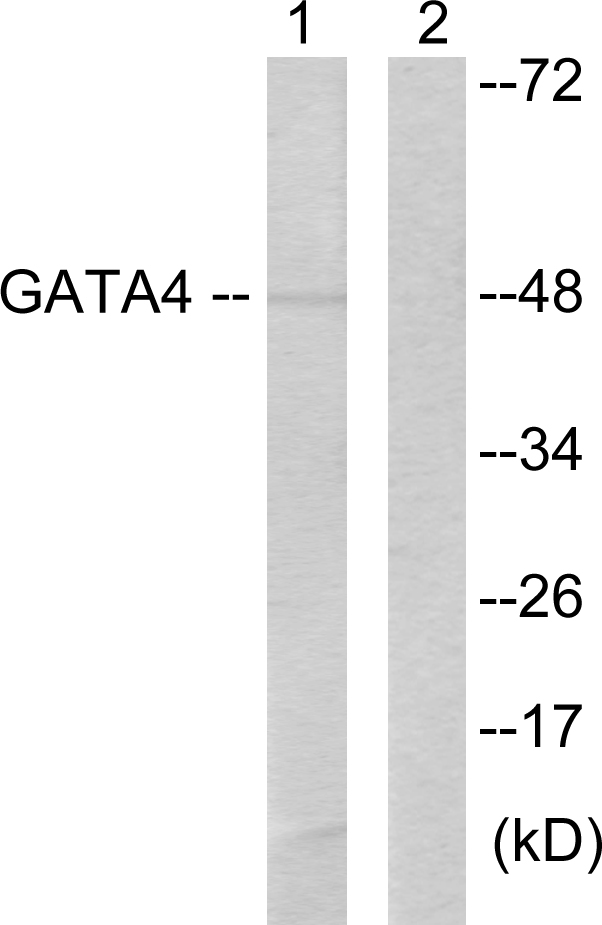


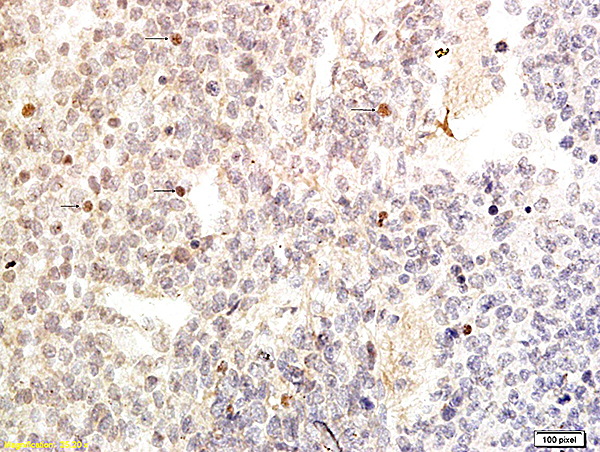

![WB analysis of rat fetal heart (1) and adult heart (2) tissues lysate using GTX83368 GATA4 antibody [6H10].](https://www.genetex.com/upload/website/prouct_img/normal/GTX83368/GTX83368_20170912_WB_w_23061322_773.webp)
![WB analysis of various cell lines using GTX84460 GATA4 antibody [9F9]. Loading : 35 ug per lane](https://www.genetex.com/upload/website/prouct_img/normal/GTX84460/GTX84460_4381_WB_w_23061420_895.webp)